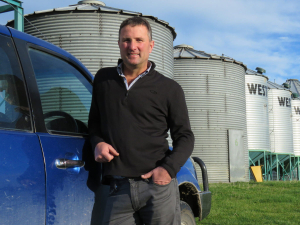Federated Farmers says the health and safety changes announced this week by the Government represent the start of overdue reforms.
Earlier this week, Workplace Relations and Safety Minister Brooke van Velden announced a series of reforms to New Zealand’s health and safety laws and regulations.
“We want all Kiwis to return home safe after every working day,” van Velden says.
“I have travelled across the country meeting with businesses, employers, and workers about how the current system works for them and what they want to see in this reform that will make their work safer. What I have been hearing consistently is that small, low-risk businesses are not sure which risks to focus on and struggle to meet the costs of compliance,” she says.
“Cabinet has today agreed to a suite of system-wide changes, including sharpening the Health and Safety at Work Act 2015, to cut through the unnecessary red tape holding these businesses back.”
As part of the reforms, cabinet has agreed to address over-compliance caused by overlapping health and safety duties by clarifying boundaries between the Act and regulatory systems.
The reforms will also see compliance costs cut by reducing notification requirements to the regulator to only significant workplace events (i.e. deaths, serious injury, illness and incidents).
David Birkett, Federated Farmers’ health and safety spokesperson, says the farmer lobby has been very clear that New Zealand’s current health and safety rules don’t work.
“They’re too strict, ambiguous and seem to have added more cost, complexity and compliance onto farmers, without any better outcomes,” Birkett says.
He says the government’s announcement outlines the first moves towards a more practical system.
"We welcome this move to focus the legislation on critical risks, rather than managing every single risk possible.
"We know many farmers, and other business owners, want to do the right thing but just don't know where to start when it comes to health and safety - it’s currently too unclear.”
Birkett says the change will make health and safety more accessible and pragmatic, reducing unnecessary costs and giving businesses more clarity about what they need to do to be compliant, while still leaving room to develop a health and safety mindset to tackle other harms.
He says the first set of changes show things are moving in the right direction, adding that Federated Farmers looks forward to seeing the detail of the changes.
Farm safety is crucial, Birkett says, however, the system needs to be grounded in fairness, practicality, and common sense.
"We need to reduce workplace incidents, but that hasn’t happened under the current rules - and all we’ve seen is a rise in clipboards, road cones, and fluorescent vests."
The reforms have also been welcomed by the New Zealand Deerstalkers Association (NZDA).
The reforms will see clarification around the responsibilities and liability limits for landowners for outdoor recreation and volunteering, something NZDA chief executive Gwyn Thurlow says is a win for hunters, conservationists, and outdoor enthusiasts.
Thurlow says the recreational sector has pushed for reform since the Health and Safety at Work Act 2015 was introduced.
“For too long, vague rules and landowner fears have shut gates – today restores common sense,” Thurlow says.
“NZDA hopes once the law is changed, it will open or re-open areas closed to recreation and volunteering,” he says.
Thurlow says the organisation – which represents New Zealand’s deerstalkers and hunters – sees the reform as a return to practical, commonsense law-making that supports positive outcomes for all New Zealanders.
“For too long, overly cautious health and safety settings have stifled access to recreational land and dampened the spirit of adventure that defines our nation,” he says.
“Landowners shouldn’t cop flak for natural hazards or hunting risks. This reform puts responsibility back on us—where it belongs—and frees up farmers, forestry blocks, and land managers to say yes to access. That’s the Kiwi way.”



















